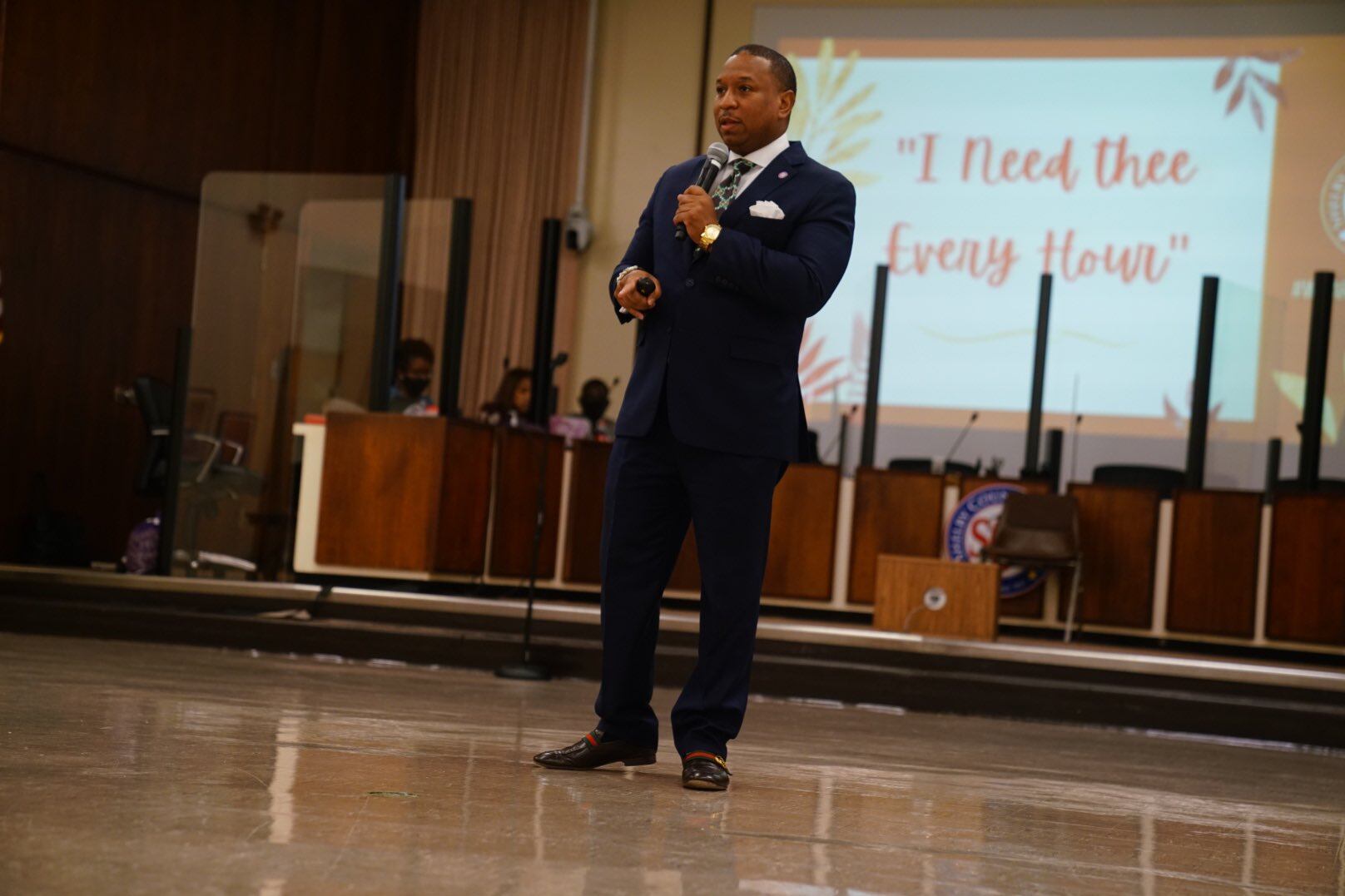Superintendent Joris Ray is delaying students’ return to Memphis classrooms for a third time, despite the governor asking him to offer in-person instruction by mid-February and legislators threatening to cut state funding.
Leaders of Shelby County Schools, Tennessee’s largest district, had planned to reopen classrooms to kindergartners-fifth graders on Feb. 8 and sixth-12th graders two weeks later. The 90,000 students in district-run schools have been all-virtual since August. Now, Ray doesn’t know when the district will offer in-person learning.
“There are multiple factors, and I and our dedicated [school] board are weighing all of them.” Ray said in a statement Friday. “Schools are safe to open, but only if we all work together to reduce the infection rate in our community.”
Ray’s continued refusal to reopen classrooms to protect teachers and students puts him in direct conflict with Gov. Bill Lee’s urging to offer in-person learning — escalating an already tense debate between the state and leaders in Memphis and Nashville on how to educate students during the coronavirus pandemic.
Ray said the virus’ spread in Memphis is still too high to reopen classrooms, though he has not specified a threshold that would allow students to begin a safe return. COVID-19 cases in Memphis have declined in recent weeks, but are still high. Ray said that policies to mitigate the spread in the broader community, such as restricting indoor dining, would help prevent transmission in schools, citing a recent medical journal article.
A Wisconsin study said spreading COVID-19 in schools was uncommon when students and staff wore masks and practiced social distancing — even when the virus’ spread in the community was high.
Still, Ray noted the local health department acknowledged the district’s decisions have played an “essential role in helping our community save lives and reduce the spread of the virus.”
“We’ve come too far by faith to turn our backs on safety now,” he said. “Now is not the time to deviate from our successful course of action. For those who say we need to get back to school, we say school is in session.”
Unlike other large city districts across the nation, Ray has not had to wade through fights with teacher unions skeptical of school officials’ ability to carry out safety measures to keep infections low. He gave the district’s 6,500 teachers the option to continue working remotely when classrooms reopen, and more than 80% took him up on the offer. District leaders plan to reassign teacher assistants, behavior specialists, and central office staff to supervise students where teachers are working from home.
Ray also said he wants to see inoculations of Memphis teachers begin soon, which the state delayed to prioritize senior citizens because they were filling up hospitals. But he stopped short of saying the delayed vaccinations were the reason he pushed back the return to school buildings.
Since the beginning of the school year, Lee has pushed districts to offer parents the option of sending their children back to classrooms. Lee spoke with Memphis and Nashville school leaders this week and urged them to offer an in-person learning option to families by Feb. 15.
“The governor has expressed his concerns about a lack of in-person options, his deep concerns about low-income students and the overwhelming data that supports promptly getting kids back to the classroom,” said Laine Arnold, a spokeswoman for the governor.
Adding to the pressure, a bill that state lawmakers may consider after they reconvene on Feb. 8 would require districts to provide an in-person learning option to elementary students for at least 70 days this school year or risk losing state dollars. That means Shelby County Schools would have to reopen classrooms by early March and stay open the rest of the school year, which ends in mid-June.
In Nashville, the state’s second largest district, Director of Schools Adrienne Battle curated local health statistics to develop a benchmark for determining when to reopen classrooms. She said Friday that she anticipates offering an in-person option for students soon based on recent lower rates of COVID-19 cases.
“The Nashville community has made great progress in slowing the spread of COVID-19,” she said in a statement. “I’ve made a commitment to our families, students, and staff that we would offer the in-person option when it was safer to do so based on our community spread.”
In Memphis, even if students do eventually return to classrooms, the district’s plan calls for online learning to continue so parents don’t feel they are missing out on a better learning experience if they aren’t ready to send their children back to school.
But students in school buildings will have in-person access to school staff to help work through any issues with online assignments and keep them on task.
This story has been updated.





